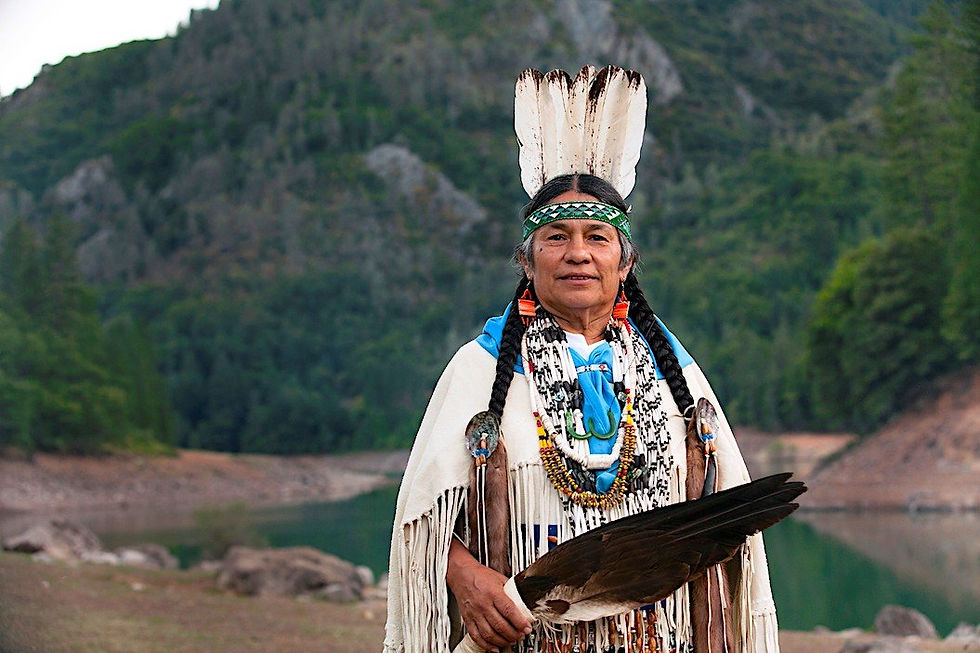Teaching Resource: Celebrating Native Empowerment during Women’s History Month
- Redbud Resource Group
- Mar 8, 2023
- 3 min read
Updated: Mar 13, 2023
There are a lot of scary realities that our students must face on a daily basis. It’s important for educators to speak frankly and realistically about the people and events that have brought shame upon this country, in hopes that our students will learn when and why history mustn’t be repeated. There are times, though, when history should absolutely be repeated. We must balance shameful lessons with empowering ones to show students that there is value in determination, purpose, and a will to thrive. Unfortunately, often those stories don’t end up in the spotlight.
For that reason, Redbud is celebrating Women’s History Month with stories of Native empowerment. We’ve curated a list of 21st Century warriors who are making the world a better place for Native and non-Native communities alike.
Insert these stories into your curriculum this month. Here are some recommended discussion questions and writing prompts to guide your students’ learning:
List 3-5 important qualities these people share, and why you think they are important.
How do their accomplishments inspire you? How do they change your perception of the world?
What are some of your favorite quotes by these people, and why?
Draw a picture depicting the strength and power of a person from this list.
Write a letter to a person on this list, thanking them for their work and contributions.
Mabel McKay
Mabel has passed on, or has joined the spirit world, but her legacy lives on through her family and loved ones. There are many great tributes to Mabel McKay, such as Mabel McKay: Weaving the Dream by Greg Sarris. A great lesson resource is “Exploring Personal Identity,” created by The Autry Museum of American West, in which students will watch a video about Mabel McKay, and then explore their own personal identity through artistic expression.

Corine Pearce
Corine Pearce lives and breathes for the purpose of empowering all land and water relatives alike. She was recently awarded a Silver Award for Community Engagement in the 2nd Annual Anthem Awards for her work in cultural revitalization as a community weaver. Take a closer look at Corine’s contributions on her website! Also (re)visit Redbud’s teaching resources on Corine’s Native-curated art exhibit in Middletown, CA.

Rose Hammock
Redbud’s very own Rose Hammock is a recipient of the North Bay Spirit Award, and a dedicated member of the Pomo, Wailaki, and Maidu communities. Her work inspires youth all over Sonoma and Mendocino counties. Check out the lesson we created in honor of Rose and her story.

Sage LaPena
Sage is another incredible being whose work in ethnobotany and herbal medicine has shed much light on the importance of Native Californian access to traditional medicine. She is both an educator and warrior, fighting for the health of Native peoples suffering from the effects of colonization. Have your students read this article and watch the short video on KCET about Sage’s vital work.

Chief Caleen Sisk
Caleen Sisk inherited her role as Tribal Chief and Spiritual Leader for the Winnemem Wintu tribe back in 2000, and has been doing amazing work on behalf of the Native communities of California. Chief Sisk spearheads a 300-mile Run4Salmon prayer journey on foot, bicycle, canoe and horse, connecting communities and strengthening relationships along the way. To learn more about Chief Sisk’s efforts to protect waterways and reunite with salmon relatives:
Host a screening of the 60-minute documentary film Dancing Salmon Home available to rent and purchase.
Host a screening of the four-part documentary Standing on Sacred Ground. The second half of “Pilgrims and Tourists” features Chief Sisk and the Winnemem Wintu. There is also a fantastic Teacher’s Guide that accompanies the film. See pages 11-12 for a short reading and discussion questions about Chief Sisk’s leadership.
Learn more about Run4Salmon and follow the prayer journey with these Mini-Lessons.

Nicole A. Mann
If you haven’t already introduced Nicole “Duke” Mann in your classrooms, Women’s History Month is the perfect time to spotlight this Round Valley Native NASA Astronaut, the first Native American female to go to space! We all have a role to play. Nicole never let anyone tell her otherwise. Her passion for engineering literally took her to the stars. Here are a few useful classroom resources for highlighting Nicole in your classroom this month!
Downlink with NASA Astronaut Nicole Mann - The Senate interviews Nicole in the International Space Station. Start the video at 20:00 to listen to her advice for youth wanting to pursue a STEM career!
Read a short Biography about Nicole on the Foundation for Women Warrior's website.
Learn more about Nicole's time on the space station in this Indian Country Today article!

Comentários